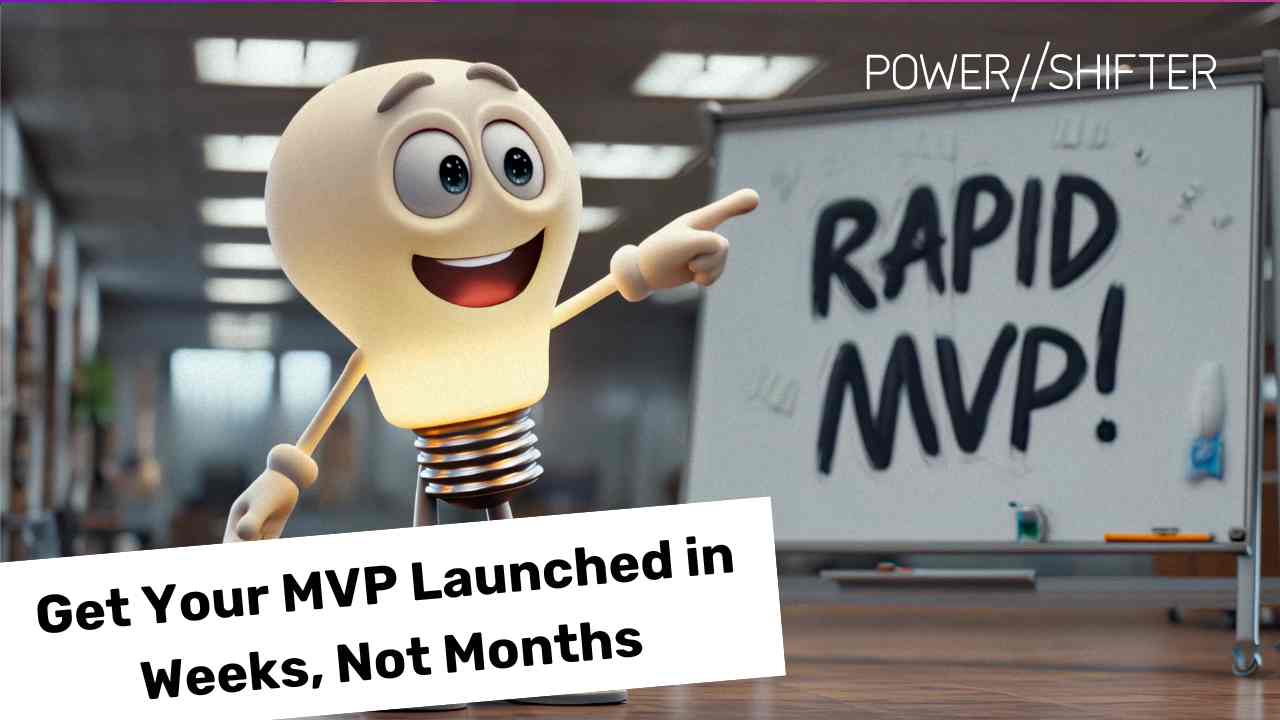Simple means simple for everyone.
In 2019, we communicated our philosophy around POWER SHIFTER’s process for creating digital products and services. “Simple” was arrived at after three years of learning, refining, and hiring the right people to shape and execute our version of Design Thinking. Today, our mandate remains the same: to simplify life’s experiences. When our clients come to us with big ideas, the best solution is still one that is so seamless to use that people barely notice it.
At POWER SHIFTER, we are big believers in continuous improvement. As unrest continues throughout North America and parts of the world, we looked inward at our policies and processes with a critical lens to uncover what we could be doing better or more of, to increase equity for all. While the current climate expedited our action, the journey of evolving our design process began earlier this year.
Designing for diversity
After attending the Agency Owners Summit conference, put on by the Bureau of Digital in February, POWER SHIFTER’s founder and CEO, JP Holecka, was inspired by an impromptu conversation over lunch with a fellow conference-goer, and speaker, Boyuan Gao. “Learning about Design for Diversity™ got me as excited as I was four years ago when I discovered the design thinking process,” said JP.
Designing for Diversity™ (D4D) was created by Boyuan Gao and Jahan Mantin of Project Inkblot. These two designers and futurists set out to create a framework that enables individuals and companies to make better work by illuminating cultural and racial biases within the design, ideation, and creative processes. The methodology was intended to be overlaid on top of existing business processes and provides guideposts and best practices to design against the dominant culture.
Returning from the conference, JP knew this framework was the next iteration of POWER SHIFTER’s mandate. To design products and services that are truly simple for everyone, we need to ensure all perspectives are taken into consideration, early and often.
Defining our ‘how’
Repeatable processes are an essential part of our culture at POWER SHIFTER. Over the last three years, we’ve adapted design thinking and design sprints to ensure our clients benefit by saving money, obtaining higher quality products, and getting those products to market faster. Layering the D4D framework onto our existing methodology extends the inclusivity of product design in a way that is organized, repeatable, and non-ambiguous. To certify that these processes work well together, the founders of D4D will help us review and refine.
Defining our ‘How’ forced us to re-examine our six lenses of simplicity. Because these lenses frame the way through which we view all challenges and opportunities, we questioned whether they still made sense. After recalibrating, we revised as follows:
- Reduce: The simplest way to achieve simplicity is through thoughtful reduction.
- Organize: Organization makes a system of many appear fewer.
- Time: Savings in time feel like simplicity.
- Discoverability: Making things easy to find makes things feel simple.
- Context: When we know the “why”, we can connect the dots and make leaps in logic easier.
- ~~Knowledge: The more we know, the simpler things are.~~ Impact: Who are we designing for, and who might we be excluding? Pushing back on personal assumptions and considering the impact of our decisions is at the core of inclusive design.
From ‘knowledge’ to ‘impact’
Shifting the focus from 'Knowledge' was a decision made after much deliberation. "Knowledge makes sense in a lot of ways," said JP. "With knowledge, the more you have, the simpler things become." But as an agency, it wasn't easy to map this lens to a tangible outcome. More importantly, the pursuit of knowledge is informed by equitable design. For example, in 2009, HP released a webcam feature with face-tracking software—except it didn't recognize people with darker skin pigmentation. If diverse perspectives are not included throughout the design process, any amount of understanding about how something should work won't make it simple, let alone usable.
Transforming inertia into action
We are highlighting this not to add to the noise, but to recognize the importance of equity and outwardly share how we as a company will contribute to solving the problem. Putting our stake in the ground is not just a sentiment; it is relevant to who we are. The POWER SHIFTER team is empathetic, curious, passionate, collaborative, and has integrity. These values are at the heart of everything we do—hiring, selecting clients, and designing our internal processes.
Jahan Mantin said, "equity and diversity are not the same things." Beyond public statements and social media posts, the inertia felt around the world needs to be channeled into action. Our 'Why' is to simplify life's experiences. If we can make products and services that are inclusive, we hope that we can not only challenge current assumptions but also change them for good.


















